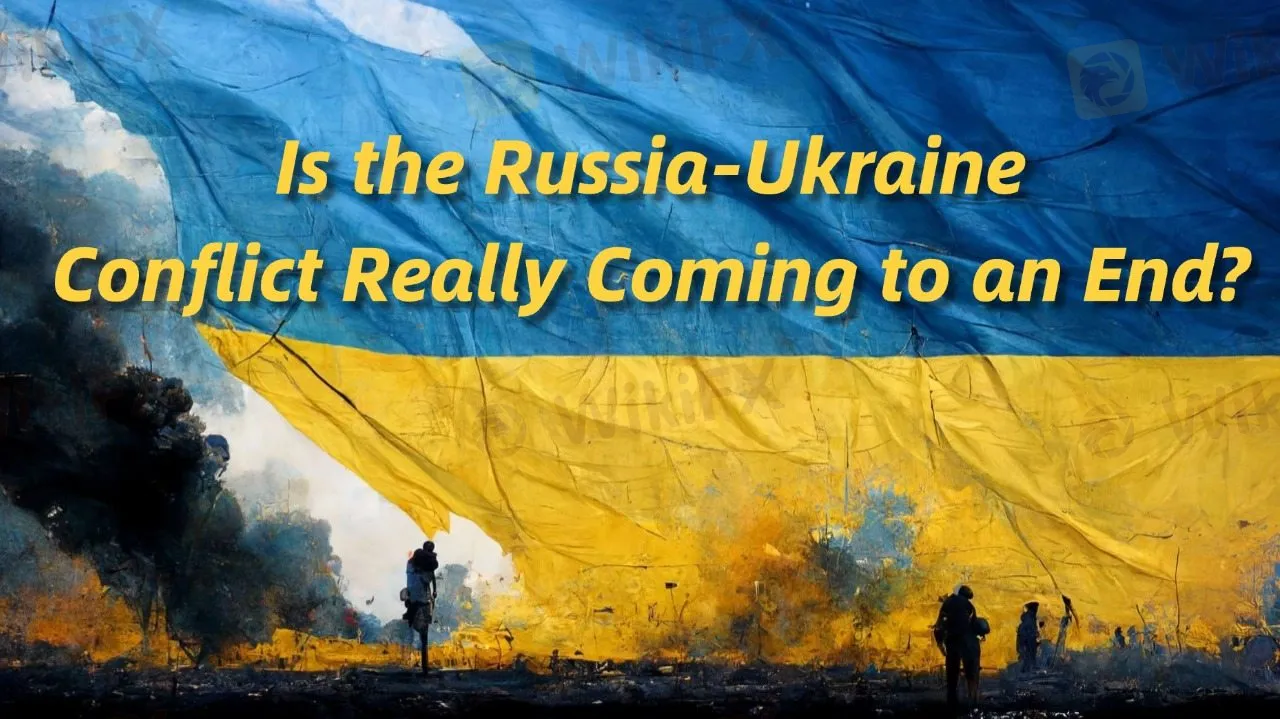简体中文
繁體中文
English
Pусский
日本語
ภาษาไทย
Tiếng Việt
Bahasa Indonesia
Español
हिन्दी
Filippiiniläinen
Français
Deutsch
Português
Türkçe
한국어
العربية
Is the Russia-Ukraine Conflict Really Coming to an End?
Abstract:As the Russia-Ukraine conflict approaches its third year, international attention to the situation has intensified. The U.S. government is actively seeking a solution to end the conflict.

According to reports, the U.S. plans to present a proposal at the Munich Security Conference in Germany next week aimed at ending the Russia-Ukraine conflict. The plan may include freezing the current conflict, leaving the territories controlled by Russian troops in a state of limbo, while providing security guarantees to Ukraine to ensure Russia does not launch another attack.
However, there is division within the U.S. government on how to end the conflict. Trump's administration is split into two camps. On one hand, National Security Advisor Robert O'Brien and U.S. Special Envoy for Ukraine Keith Kellogg advocate for using America's influence to force Russian President Vladimir Putin to make concessions and reach a peace agreement. On the other hand, some in Trump's government suggest reducing aid to Ukraine, believing that this would force Ukraine to accept peace talks more quickly. This proposal has sparked widespread controversy, with critics arguing that it effectively disarms Ukraine and forces it to surrender to Russia.
During his campaign, Trump repeatedly stated that he could quickly end the Russia-Ukraine conflict once in office. However, as the situation has evolved, he has come to realize that the process of ending the war may be far more complex and lengthy than he initially anticipated. In this context, Trump has publicly stated that if Putin does not engage in negotiations, the U.S. may impose more sanctions and tariffs on Russia. Nevertheless, due to the significant decoupling of the U.S. and Russian economies, the pressure that Trump can exert on Russia through tariffs is likely to be limited.
Despite the U.S. government's efforts to pressure Russia through political and economic means, ending the conflict remains a significant challenge. First, existing international sanctions have placed immense pressure on Russia's economy, but the sanctions that the U.S. can still impose are quite limited. Additionally, the sharp decline in trade means that Trump's tariff threats against Russia are losing effectiveness, and with the U.S. and Russian economies almost fully decoupled, America's economic leverage over Russia has been greatly diminished.
Both Russia and Ukraine have shown some willingness to negotiate regarding the future of the conflict. Ukrainian President Zelensky recently indicated that he does not rule out the possibility of dialogue with Putin, while Russia has also expressed its willingness to engage in talks under certain conditions. However, significant obstacles remain, including issues of legitimacy surrounding Zelensky, which complicate the process. Meanwhile, Russia continues to insist on certain conditions before further discussions can take place.
Given the complexity of the Russia-Ukraine conflict, the international community and all involved parties must adopt a more flexible and pragmatic approach. The U.S. role is crucial, and whether the proposed plan to freeze the conflict can be implemented will depend on the responses and actions of all parties involved.

Disclaimer:
The views in this article only represent the author's personal views, and do not constitute investment advice on this platform. This platform does not guarantee the accuracy, completeness and timeliness of the information in the article, and will not be liable for any loss caused by the use of or reliance on the information in the article.
Read more

Voices of the Golden Insight Award Jury | George Georgiou, the Co-Founder of Dynamic Works
WikiFX Golden Insight Award uniting industry forces to build a safe and healthy forex ecosystem, driving industry innovation and sustainable development, launches a new feature series — “Voices of the Golden Insight Awards Jury.” Through in-depth conversations with distinguished judges, this series explores the evolving landscape of the forex industry and the shared mission to promote innovation, ethics, and sustainability.

Prop Firm Tradeify Signs ‘The Nuke’ as Global Brand Ambassador
Miami-based prop trading firm Tradeify has officially announced a major long-term partnership with Luke “The Nuke” Littler, the current World Number 1 and reigning 2024/2025 PDC Darts World Champion. Littler joins Tradeify as its new Global Brand Ambassador, marking one of the company’s most significant branding investments to date.

Close Up With WikiFX —— Take A Close Look At Amillex
With the rapid growth of global multi-asset investment markets, the differences among regional forex markets have become increasingly significant. As a forex broker information service platform operating in more than 180 countries and regions, WikiFX is dedicated to helping investors in every market identify reliable brokers. Therefore, we have launched an exclusive interview series —— "Close Up With WikiFX", offering in-depth conversations with local brokers. This series aims to dive deep into frontline markets and provide first-hand information, helping investors gain a clearer and more comprehensive understanding of quality brokers.

Polymarket Onboards First US Users Since 2022 Shutdown: Beta Relaunch Signals Major Comeback
Crypto-based prediction platform Polymarket has officially begun onboarding select U.S. users for real-money betting, marking its first return to the American market since a regulatory shutdown in 2022.
WikiFX Broker
Latest News
Simulated Trading Competition Experience Sharing
WinproFx Regulation: A Complete Guide to Its Licensing and Safety for Traders
Interactive Brokers Expands Access to Taipei Exchange
Axi Review: A Data-Driven Analysis for Experienced Traders
INZO Regulation and Risk Assessment: A Data-Driven Analysis for Traders
Cleveland Fed's Hammack supports keeping rates around current 'barely restrictive' level
Delayed September report shows U.S. added 119,000 jobs, more than expected; unemployment rate at 4.4%
The CMIA Capital Partners Scam That Cost a Remisier Almost Half a Million
eToro Cash ISA Launch Shakes UK Savings Market
Is Seaprimecapitals Regulated? A Complete Look at Its Safety and How It Works
Currency Calculator



